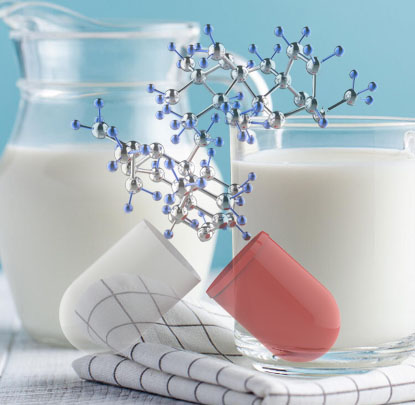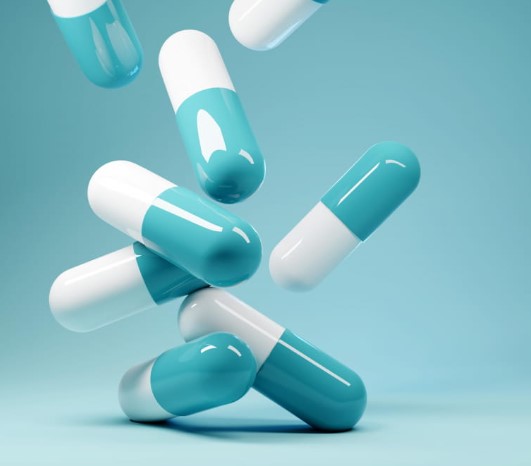Antibiotics in milk

Photo is illustrative in nature. From open sources.
Antibiotics in milk are a serious problem that can negatively affect human health. Some farmers may use antibiotics to prevent disease in animals, which can result in antibiotics being passed into milk . In addition, animals can develop infectious diseases that require antibiotic treatment, and antibiotics can also pass into milk.
However, after boiling milk, antibiotics do not disappear. Boiling kills bacteria and viruses, but antibiotics remain in the milk. In addition, when milk is boiled, denaturation of proteins can occur, which can lead to a change in the taste and nutritional properties of milk.
When consuming milk containing antibiotics, a person may encounter various problems. First, antibiotics can cause allergic reactions in people, which can be very serious. Secondly, antibiotics can cause disturbances in the intestinal microflora, which can lead to dysbacteriosis and other health problems.
To avoid problems with antibiotics in milk, it is necessary to observe the rules of hygiene when milking and storing milk. It is also necessary to monitor the health of animals and treat them only as directed by a veterinarian. If the animal received antibiotics, then the milk from it must be diverted for a certain period of time so that the antibiotic is completely removed from the animal's body.
In conclusion, boiling milk does not eliminate the problem with antibiotics in it. To avoid this problem, it is necessary to observe the rules of hygiene during milking and storage of milk, monitor the health of animals and treat them only as directed by a veterinarian.
Read together with it:
- My husband reproaches me for being on maternity leaveMy husband openly reproaches me for being on maternity leave. The initiative to have a child was entirely his. He was initially looking for a woman to start a family, have children with, and he found me. Already in the first year of marriage he was worried that there were no children for a long time...
- I betrayed my friend and I don’t know how to make amendsBetrayed a close friend, one might even say a kindred spirit. Her name is Vika.We met in the 6th grade (I transferred to another school). At first I didn't really like her, and she didn't like me either, but gradually we got closer and by the 8th grade we were already getting along great, and by the...
- If your mother-in-law is an energy vampireI ask for advice and help in communicating with my motherhusband . She is a good person, she hasn't done anything bad to me. She has never offended me, she hasn't gossiped behind my back. But it is very difficult for me to communicate with her, as if she is sucking the strength out of me. She consta...
- Jealous guyI always wanted to have one like thisa guy who would keep me close to him, who would know everything about me, who would take care of me all the time. In general, I wanted my guy and I to have a complete unity of souls. Like twins. Or let there be a guy who will keep my "inadequate artistic" nature ...
- Now I know what happiness looks likeI was born into a large, poor family in a small provincial town. Parents alllife fought for survival. In the 90s this was the norm. Parents always believed that a person must have a higher education, and they tried in every possible way to give all their children the opportunity to study at a univer...
- My husband was disappointed in me and asked for a divorceI thought for a long time whether to write here or not, but suddenly my story will help someone. After readingconfession “I had an abortion and don’t regret it” and numerous comments to it, I want to write my story.Now I'm completely alone. Yes, I have a higher education in the specialty in which I ...
- An untold toast to my future mother-in-lawMy boyfriend and I have been dating for 4 years. He is currently in the army, but I am in contact with his parents. And since my parents are divorced, I often call his mother. She is, of course, a person with a difficult character, and before this incident we still had conflicts and misunderstanding...
- I'm afraid I'll never get marriedI'm 25 years old and I'm afraid I'll never be in a relationship. There was never a relationship, for various reasons. Sometimes I loved, but I didn’t, and vice versa. I’ll say right away that for me the expression “old maid” is not true.the girl who wasn'tnever married , and the one who doesn’t know...

